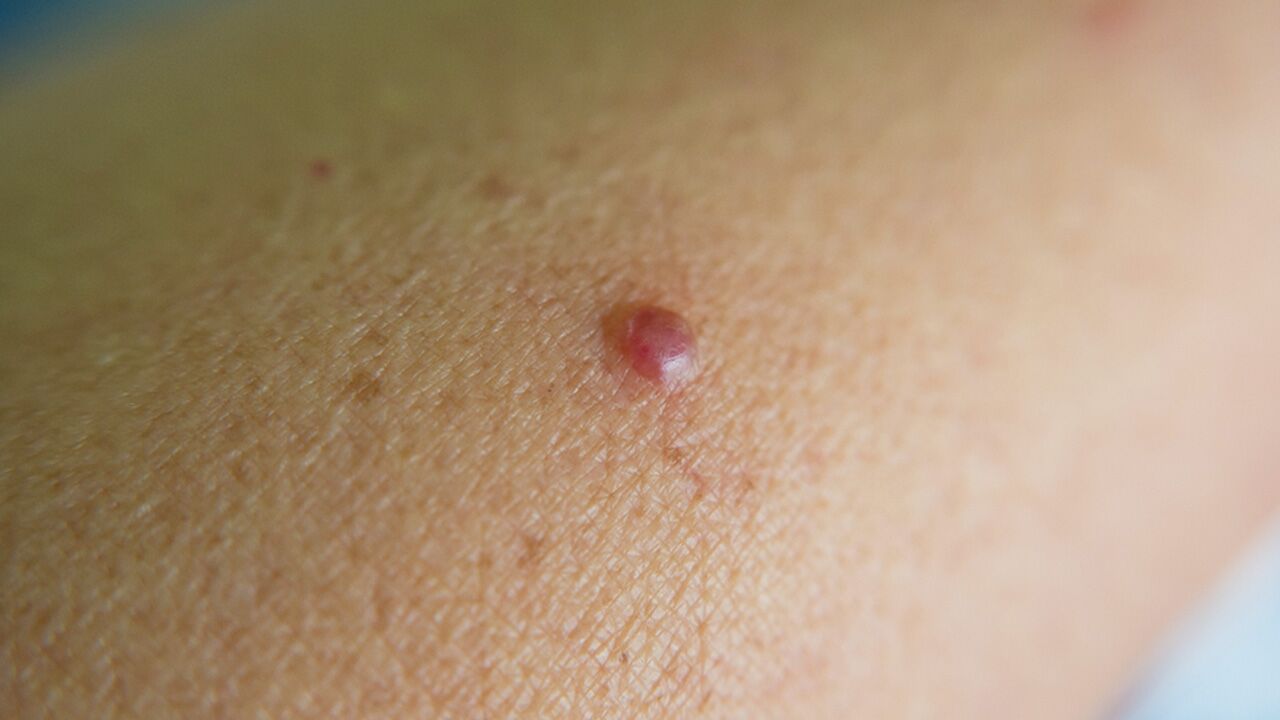How Proper Sanitation Helps to Prevent Illnesses and 14 Natural Ways to Boost Your Immune System
 By: by Amino Science
By: by Amino Science

Researchers estimate that 2.6 billion people across the globe lack adequate sanitation. Lack of proper sanitation practices is believed to contribute to approximately 10% of the “global disease burden” according to a report published in PLOS Medicine.
Fortunately, most of the western world has clean running water and sanitation systems. However, that doesn’t mean infectious diseases can’t spread due to poor personal sanitation practices and lifestyle choices.
Infectious diseases in the United States are considered a health crisis. And the Centers for Disease Control and Prevention (CDC) requires that local health departments and hospitals report cases of infectious diseases to help track potential outbreaks and their sources.
The CDC is the best source for the latest contagious disease outbreaks in the U.S. and abroad, as well as foodborne pathogen outbreaks. They are also an excellent source for fact-checking. On social media, troublemakers spread falsehoods about infectious diseases—make the CDC’s website your first stop in verifying accurate reports from the lies.

What Are Infectious Diseases?
An infectious disease can be transmitted by human-to-human contact, eating contaminated food or drinking contaminated water, through the air, a bite from an animal or insect, or swimming in contaminated water. Pregnant women can pass certain infectious diseases while the baby is in the womb or during birth.
Proper hand washing is one of the best ways to protect yourself from contagious illnesses, as germs can live on tabletops, doorknobs, grocery carts, and other inanimate objects. Some pathogens can live for hours or even days on a surface outside of their original host. So, when you touch a contaminated surface, you can pick up the germs and possibly become infected.
There are hundreds of infectious diseases across the globe that are caused by bacteria, fungi, parasites, or viruses. If you are diagnosed with an infectious disease, it is vital that you practice safe sanitation practices in your home to avoid spreading the disease to your family. It is also important to stay home, away from work and crowds.
Depending on the infection, you may be prescribed certain medications like antibiotics, antivirals, antifungals, or anti-parasitic drugs to kill the offending pathogen. Not all infectious diseases are life-threatening. Remember, the common cold and influenza are contagious, but can be treated effectively.
Remember, the common cold is contagious, and you can help prevent further spread through proper personal sanitation practices including hand washing and safe sex.
Infectious Diseases in Children
Germs surround children in schools and daycare centers, and abound during after-school activities. Kids often don’t quite grasp the importance of hand washing and keeping their fingers out of their mouths and eyes. And, let’s be honest, sanitation practices in some schools and daycare centers can leave a lot to be desired.
The incubation period of infectious diseases varies significantly from disease to disease and can range anywhere from two days to three weeks. Childhood infectious diseases include:
- Chickenpox
- HIV/AIDS acquired from birth
- Influenza
- MRSA infections
- Measles
- Meningitis
- Mumps
- Pneumonia
- Streptococcal disease
- Tick-borne diseases including Lyme disease
- Whooping cough
- Respiratory infections
Infectious Diseases in Travel
When traveling outside of the country, it is essential to prepare yourself for sanitation standards outside of what you are accustomed to in the United States and Canada. Many areas of the world, including developed countries, have lax sanitation standards when it comes to water and food.
Anyone who has traveled south of the border has been warned of the misery of Montezuma’s revenge. Poor sanitation practices are responsible for food poisoning cases in the United States and across the world. When traveling overseas, follow the local recommendations for drinking water—bottled water is often the safest choice.
And remember, contaminated water can contaminate uncooked foods, so protect yourself from unwanted digestive distress by avoiding raw fruits and vegetables, including salads. Brushing your teeth with contaminated water, and even showering, can cause adverse symptoms, and a potentially serious infectious disease. Heed the precautions of your physician and the CDC when traveling.
In addition to water and food contamination concerns, certain areas of the globe have infectious diseases that aren’t found in the western world. When traveling to certain areas of South America, Asia, or Africa, check with the CDC’s vaccine recommendations and follow them carefully. Some countries require specific vaccines before entry into their country. You could be denied entry if your shot records are not up-to-date. And, depending on where you travel, your medical team may recommend vaccines to prevent:
- Chickenpox
- Cholera
- Diphtheria
- Hepatitis A and B
- Japanese encephalitis
- Measles
- Mumps
- Polio
- Rabies
- Rubella
- Tetanus
- Tuberculosis
- Typhoid
- Yellow fever
In addition to vaccines, if you are traveling to an area with malaria, it is vital that you take a malaria preventative before, during, and after your trip to prevent this parasitic infection. It is equally important to protect yourself from mosquito bites in these areas by wearing protective clothing, using bug repellant, and avoiding areas where mosquitoes swarm at dusk.
According to the CDC, malaria is quite common in Africa, some parts of Central and South America, as well as parts of Asia. In some areas, the risk for infection is considered high. Check the CDC’s guide on malaria and yellow fever for more information.
Infectious Diseases in the U.S.
Inside the United States, we have our share of infectious diseases too. Foodborne diseases are all too common now, with outbreaks creating headlines nearly every month. In fact, according to the CDC, one in six Americans contract a foodborne illness or food poisoning each year resulting in 3,000 deaths annually.
Poor sanitation practices in the fields, in the processing and the packaging of foods, and in the handling of foods at restaurants and in homes can cause:
- Botulism poisoning
- Cyclospora
- E. Coli infections
- Hepatitis A
- Listeria infections
- Salmonella
- Vibrio parahaemolyticus
In addition to foodborne infectious diseases and the contagious diseases that commonly strike children, there are a variety of contagious diseases that require medical intervention each year. Both the common cold and the flu fall in this category, but less common diseases include:
| Campylobacter | Clostridium Difficile (C. Diff) | Encephalitis |
| Giardiasis | Hantavirus | Hepatitis A, B, & C |
| Hospital-acquired infections | Legionnaire’s disease | Leptospirosis |
| Lyme disease | MRSA (staph) infection | Meningitis |
| Meningococcal disease | Norovirus | Plague |
| Pneumonia | Rabies | Rubella |
| Respiratory infections | Tuberculosis | West Nile Virus |
| Zika Virus |
Sexually Transmitted Diseases
In addition to infectious diseases caused by animal or insect bites, foodborne pathogens or poor sanitation practices, infectious diseases are spread through physical and sexual contact—including petting, vaginal, oral, and anal sex.
The CDC estimates that there are 20 million new infections every year in the United States and notes that the only way to prevent STDs is abstinence. The best safe sex practices include condom use, even during foreplay, and monogamy to help protect you and your partner from contracting a sexually transmitted disease.
In addition to the list of sexually transmitted diseases below, it is essential to understand that two other infectious diseases—the Zika virus and Ebola—can be spread through sexual contact, even though they are not considered STDs.
- Bacterial vaginosis: Also known as BV, bacterial vaginosis often has no symptoms. Bacterial vaginosis is the most common vaginal infection for women 15 to 44. Without treatment, BV can increase your chance for contracting other STDs, and it can cause pregnant women to deliver early.
- Chlamydia: Chlamydia is the most commonly reported STD in the U.S. Chlamydia is relatively easy to cure with the right antibiotics. It is crucial that you refrain from sexual contact while on antibiotics, and all partners should be treated. When left untreated, chlamydia can increase the risk for PID, ectopic pregnancy, and infertility in women.
- Gonorrhea: If you are sexually active, you can contract gonorrhea. Over the years, gonorrhea has developed resistance to certain antibiotics, making treatment challenging. It is vital to treat gonorrhea, as it can cause serious health problems.
- HIV/AIDS: If you’ve been diagnosed with other STIs, you are more likely to contract HIV in the future. HIV treatments have evolved over the years, but there is still no cure for HIV/AIDS.
- Herpes: Herpes is prevalent, and you can get genital herpes from an infected partner, even if he or she currently doesn't have an outbreak. There is no cure for herpes, but medications are available to help mitigate symptoms and make it less likely to spread to your partner.
- Human papillomavirus: The human papillomavirus or HPV can cause genital warts and even certain types of cancer. Cancers related to HPV include cancer of the throat, penile cancer, anal cancer, cancer of the vulva, and cancer of the vagina. Women can be tested, however, there is currently no test for men.
- Syphilis: In its early stages, syphilis is easy to cure with the right medications. This is a highly contagious STD that is spread through direct contact with a syphilis sore. Left untreated, syphilis can cause neurosyphilis symptoms including dementia, paralysis, and abnormal muscle movements.
- Trichomoniasis: This is a very common STD caused by a parasite. Trichomoniasis is the most curable of all of the STDs. However, as it rarely causes symptoms, many people transmit it without knowledge. Left untreated, it can cause genital inflammation that makes you more prone to an HIV infection.
14 Natural Ways to Boost Your Immune System
Having a strong immune system can help your body fight off parasitic, fungi, bacterial, and viral infections and may aid in recovery if you contract an infectious disease due to poor sanitation practices or exposure to pathogens.
Lifestyle factors and nutritional supplements can work together in cold and flu prevention, even during outbreaks. When flu season approaches, or if you are traveling outside of the United States, boost your immune system with a combination of lifestyle factors and nutritional supplements.


7 Lifestyle Factors to Support Your Immune System
1. Eat a Nutrient-Dense Diet
Certain nutritional deficiencies, including insufficiencies in zinc, selenium, vitamin A, vitamin B6, vitamin C, and vitamin E, are linked to poor immune system health. Consume a variety of fresh fruits and vegetables every day to make sure you are getting enough key nutrients to help your body fight bacteria, viruses, parasites, and fungi.
2. Exercise Regularly
According to a clinical study in the journal Clinical Sports Medicine, regular exercise boosts the immune system. Researchers identify that moderate exercise has a direct positive effect on the immune system and may offer protective benefit. It should be noted that the authors of the study state that repeated bouts of strenuous exercise can result in immune system dysfunction. Balance is key.
3. Get to a Healthy Weight—And Maintain It
Being overweight can impair your immune system according to The Obesity Action Coalition. Excess weight can decrease cytokine production, alter monocyte and lymphocyte function, and reduce cell function. The bottom line is that being overweight or obese increases your risk of infection and the severity of an infection.
4. Drink Alcohol in Moderation
According to a study published in the journal Alcohol Research: Current Reviews, researchers point to multiple studies that show that alcohol disrupts immune pathways resulting in an impaired ability to fight pathogens and infections. The authors of the study point to the GI tract and its relation to the immune system and how alcohol moves through the body.
5. Get Enough Sleep
Adequate sleep is essential for immune system functioning. While we sleep, our body releases cytokines that are vital for killing inflammation and infection. Insomnia decreases the release of these chemicals, which can increase your risk for contracting infectious diseases, as well as increase your risk for cardiovascular disease, diabetes, and obesity.
6. Minimize and Manage Stress
There is a direct connection between the mind and the body, and this is best demonstrated by the negative health effects stress can cause. According to Harvard Medical School, unmanaged and chronic stress weakens the immune system. And, according to the Cleveland Clinic, chronic stress contributes to other health conditions, including fibromyalgia, lupus, IBS, and arthritis.
7. Protect Yourself from Mosquitoes
In the United States, the Zika virus and the West Nile virus are becoming more prevalent every year. And, when you travel overseas, there are more mosquito-borne diseases than just malaria. Whenever you are around mosquitos, it is important to use mosquito repellant, dress in long pants and long-sleeved shirts, and avoid going outside from dusk to twilight so mosquitoes don’t take you for food.
In addition to over-the-counter mosquito repellents, the CDC mentions using the natural Oil of Lemon Eucalyptus (OLE) as an effective repellent. With the growing concern of mosquito-borne diseases like chikungunya, dengue fever, yellow fever, and several types of encephalitis, it is important to use a combination of methods when you are in areas with mosquitos.
7 Nutritional Supplements to Support Your Immune System
1. Probiotics
In addition to eating probiotic-rich foods like yogurt, kefir, kombucha, and sauerkraut, adding a probiotic supplement may help your immune system operate optimally. According to a systematic review published in the journal Current Opinions in Gastroenterology, probiotic supplements can help in both disease prevention and treatment.
When choosing a probiotic supplement, opt for a high-quality one with at least 50 billion colonies and at least seven strains of bacteria. This provides you with an army of friendly bacteria to fight the unfriendly bacteria and pathogens trying to invade your body.
2. Zinc
Zinc is essential for fighting free radicals and helping to prevent disease. Zinc deficiencies are common across the globe, and those who are deficient may be at an increased risk for certain infections. If you are deficient or fighting an infection, take 15 milligrams to 30 milligrams a day of a high-quality supplement.
In a report published in the journal Molecular Medicine, researchers indicate that zinc supplementation may help fight the common cold and other pathogens while decreasing oxidative stress and generating essential cytokines.
3. Vitamin D
Vitamin D deficiencies are becoming more and more common in Americans. This deficiency is caused by not getting enough sunshine and not consuming enough vitamin D-rich foods. Take 2000 IU daily, and expose your skin to the sun to help keep your immune system operating properly.
In a manuscript published in the Journal of Investigative Medicine, the author explains that a vitamin D deficiency increases the risk for infection. Vitamin D supplementation and sunshine have beneficial effects on the immune system, including the inhibition of both B cell proliferation and T cell proliferation.
4. Vitamin C
For decades in the United States, vitamin C has been used to fight colds and boost the immune system, and for good reason. Vitamin C is a powerful antioxidant that finds and attacks free radicals associated with a variety of infectious diseases. To support a healthy immune system, even in the most neglected sanitation practices, take between 1000 milligrams and 1500 milligrams daily.
5. Vitamin B6
Vitamin B6 supports a variety of biochemical reactions in the immune system according to the Cleveland Clinic publication Health Essentials. Vitamin B6 supplements are available, but you can also take a high-quality B-complex vitamin to meet your nutritional needs. Adding vitamin B6-rich foods like chicken, salmon, tuna, and chickpeas to your diet can also boost immune system response.
6. Vitamin E
In the same publication from the Cleveland Clinic, vitamin E is mentioned as a powerful antioxidant that “helps the body fight off infection.” Vitamin E is a fat-soluble vitamin that helps fight environmental free radicals. For adults, the recommended DV is 15 milligrams and for breastfeeding women 19 milligrams.
Worth noting is that taking a vitamin E supplement may interfere with certain cancer treatments, including radiation therapy and chemotherapy. Talk to your oncologist before taking vitamin E supplements during treatment.
7. Amino Acids
The intestines and the gut-associated lymphoid tissue (GALT) are interworking components in the immune system. Together, they help protect against pathogens and support healthy absorption of dietary nutrients. According to a study published in the Journal of Animal Science and Biotechnology, amino acids including glutamine, glutamate, and arginine are essential for optimizing immune functions in the intestines.
To maintain an ideal balance of essential amino acids in the blood, it is best to take an amino acid supplement formulated with all nine essential amino acids, like Life, our Active Aging blend.


Up to 25% off Amino
Shop NowTAGS: natural cures
Join the Community
Comments (0)
Most Craveable Recipes




 833-264-6620
833-264-6620



















